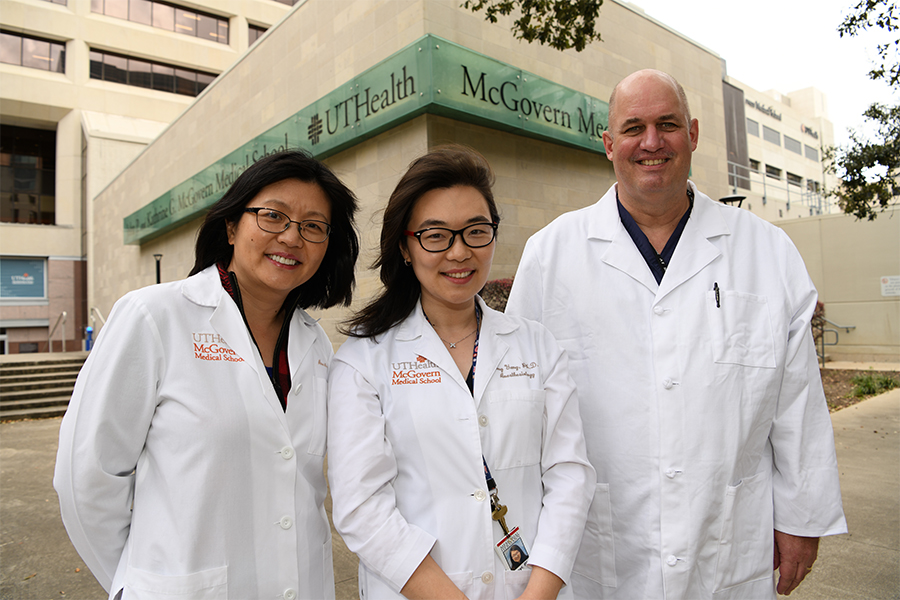Dr. Xiaoyi Yuan Awarded NIH Highest Research Grant

The National Institutes of Health (NIH) has awarded its highest offered grant to Xiaoyi Yuan, PhD, assistant professor in the Department of Anesthesiology, a nearly $2 million Research Project Grant (R01) to fund research on acute respiratory distress syndrome (ARDS).
Dr. Yuan’s project is titled “Targeting Myeloid Depended MicroRNAs in Acute Respiratory Distress Syndrome.” Her research will study specific small gene product named MicroRNA that are highly induced in a group of immune cells called myeloid cells. The discovered gene product could help change the phenotype of those myeloid cells to potentially provide lung protection.
Dr. Yuan’s collaborations and focus on ARDS led to the creation of her own COVID-19 lab, where she is actively carrying out studies with SARS-CoV-2. She is determined to define and uncover novel concepts to treat patients with ARDS, particularly those who also suffer from COVID-19.
“What’s more exciting is now some of our early findings have been recently translated into the clinic,” Yuan said. “We have been working on hypoxia signaling, and now we are working on a clinical trial for vadadustat, a drug that could enhance the hypoxia signaling pathway. We’re studying that as a treatment for COVID-19 ARDS, and it’s very important for the translational aspect of our research.”
This is Dr. Yuan’s first R01 grant, a feat that is nearly impossible for a research scientist so early in their career. Roughly only 10 percent of all research scientists receive an R01 grant in their career, with the average age of their first coming around age 45. Yuan’s grant is funded for $1.95 million ($390,000 per year) over a five-year period, beginning in February 2022 and running through the end of January 2027.